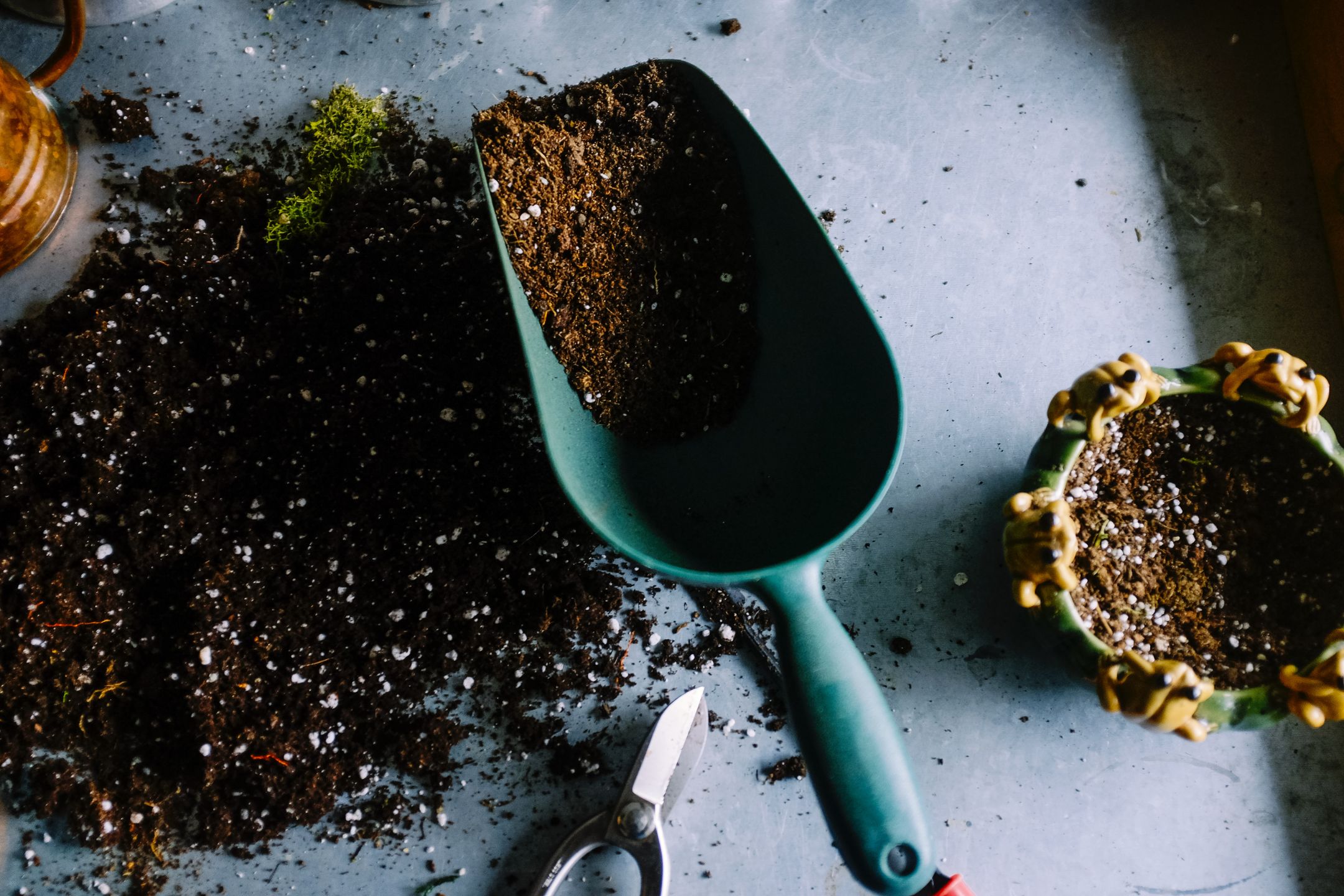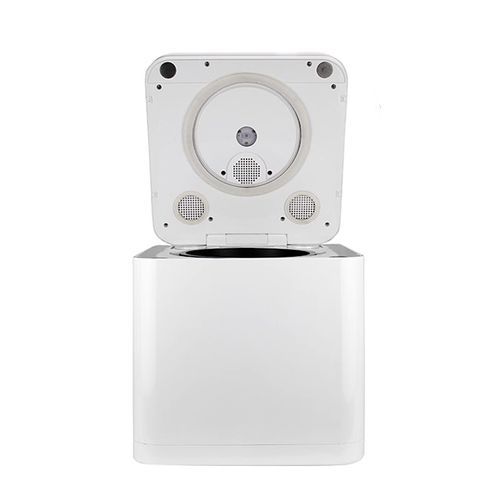National Free Service Email: info@spairobot.com

Get A Quote
Electric Composting vs Traditional Composting: A Comparative Analysis
Introduction
Composting represents an eco-friendly practice for waste reduction and soil enrichment, crucial for environmentally conscious households and communities. However, as composting practices advance, two primary methods have emerged: electric composting and traditional composting. Each technique offers unique benefits and considerations. In this extensive guide, we explore the realm of composting, analyzing the disparities, advantages, and potential drawbacks between electric composting and the long-standing traditional composting methods. Our goal is to elucidate the intricacies of both approaches, enabling you to make a well-informed decision regarding the composting method that best fits your requirements and aligns with your sustainability objectives.
What is Traditional Composting
The conventional practice of composting, which traces back for centuries, embodies simplicity and the natural course of action. This method involves combining various organic waste elements—such as kitchen leftovers, garden clippings, and paper—within a compost pile or container. Gradually, microorganisms, heat, and oxygen facilitate the decomposition of these organic materials. Regularly turning or mixing the compost helps aerate the pile, accelerating the breakdown into nutrient-rich humus. One of the key merits of traditional composting lies in its reliance on natural processes, promoting a gradual, hands-on approach that allows organic matter to transform naturally into valuable soil enrichment. This method encourages an intimate connection with the composting process, enabling individuals to actively participate in the Earth's natural cycles while contributing to sustainability. Although traditional composting requires patience and manual labor in managing the compost pile, its core principles underscore the significance of managing organic waste and the environmental value of replenishing nutrients to the soil. Compared to electric composting, the traditional method follows a simpler, more time-intensive process that respects the gradual conversion of organic materials into nutrient-rich compost, preserving traditional techniques rooted in sustainability and environmental mindfulness.
What is Electric Composting
Exploring electric composting reveals a groundbreaking method for processing organic waste that stands apart from traditional practices. These modern composters utilize electricity to expedite the decomposition of organic materials, offering a more rapid and controlled composting experience. Unlike the natural decomposition process of traditional composting, electric composters enable users to regulate crucial variables such as temperature and moisture levels, optimizing conditions for swift breakdown of organic matter. Their automated mechanisms efficiently blend and aerate the compost, eliminating the need for manual turning or mixing while ensuring a consistent environment conducive to the growth of beneficial microorganisms. The primary advantage of electric composting lies in its convenience and efficiency, appealing to those with limited space or urban settings seeking a hassle-free composting solution. These systems simplify the composting process, accelerating the conversion of kitchen scraps and organic waste into nutrient-rich compost suitable for enhancing soil quality. The allure of electric composting stems from its ability to produce compost quickly, often within weeks, a stark contrast to the months required by traditional composting methods. This efficiency, combined with user-friendly operation, makes electric composters an attractive option for individuals seeking a more manageable and time-effective approach to composting.
Electric Composting vs Traditional Composting:
When comparing electric composting to traditional composting methods, several significant distinctions surface. Electric composting, driven by technology and electrical power, offers a more controlled and accelerated composting process compared to the natural decomposition process inherent in traditional composting. The key difference lies in the speed and efficiency at which decomposition occurs. Traditional composting relies on natural elements such as temperature, moisture, and microbial activity to break down organic matter gradually. This method is time-consuming and can take several months to yield usable compost. On the other hand, electric composters utilize mechanical and automated systems to expedite the decomposition process, often yielding compost in a fraction of the time. Moreover, electric composters require less physical effort and manual labor compared to traditional methods. They automate essential tasks like turning and mixing, offering greater convenience to users. However, traditional composting promotes a deeper connection with the natural cycle of decomposition, allowing individuals to witness firsthand the organic matter's transformation into compost. While both methods have their advantages, the choice between electric and traditional composting often boils down to personal preferences, available time, and space. Electric composters cater to those seeking faster results, efficiency, and ease of use, while traditional composting may appeal to individuals desiring a more hands-on and environmentally connected composting experience. Ultimately, the decision hinges on balancing convenience with a preference for a more natural, time-tested process.
Environmental Impact and Sustainability
Comparing the environmental implications of electric versus traditional composting, it's crucial to assess their effects on waste reduction, soil quality, and greenhouse gas emissions. Traditional composting plays a vital role in waste reduction by diverting organic waste from landfills, preventing methane emission—a potent greenhouse gas. It also enhances soil health, fostering biodiversity and improving structure. In contrast, electric composting accelerates the process but might affect the resulting compost's quality and nutrient levels due to its speed. Greenhouse gas emissions differ; traditional composting has minimal emissions, while electric composters might contribute to carbon emissions based on their energy source. Sustainability-wise, traditional composting excels in promoting natural recycling and soil enrichment without relying on external energy. Although electric composting offers convenience, its energy consumption might lead to a higher carbon footprint. Thus, while electric composting is efficient, traditional composting is more aligned with sustainability goals, focusing on natural recycling, soil health, and reduced energy consumption.
Conclusion
In summarizing the key points about Electric Composting versus Traditional Composting, it's essential to recognize that each method has its strengths and implications. Traditional composting, a natural process, excels in waste reduction, soil enrichment, and minimal greenhouse gas emissions. Electric composting offers convenience and quicker results, yet may pose variations in soil quality due to accelerated composting. The choice between these methods depends on individual circumstances and preferences. Factors such as available resources, time, space, and environmental concerns should be considered. It's crucial for you guys to assess their needs and weigh the environmental impact when choosing a composting method. Both methods contribute to waste diversion and soil enhancement, but selecting the right one aligns with personal goals and sustainability aspirations. Therefore, understanding the trade-offs and benefits of each approach helps in making an informed decision tailored to specific situations. If you are a busy commuter, I think an electric composter is more suitable for you, at Spair, we have efficient and convenient composters that can help busy you don't have to bother with the slow speed of traditional composting.


